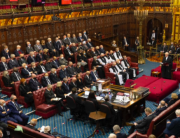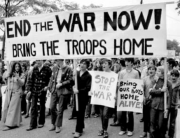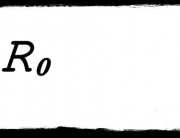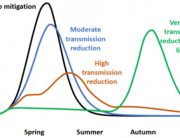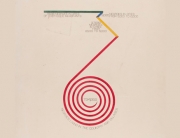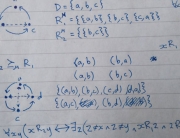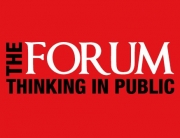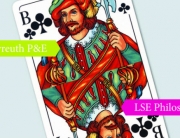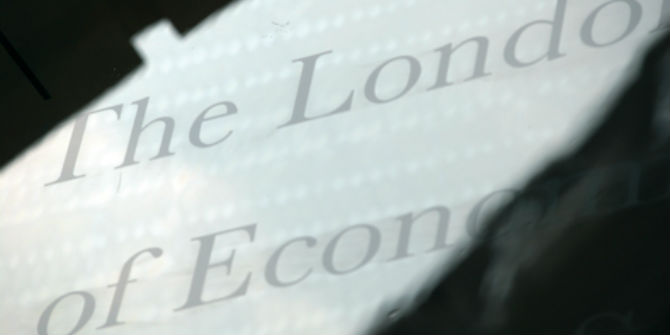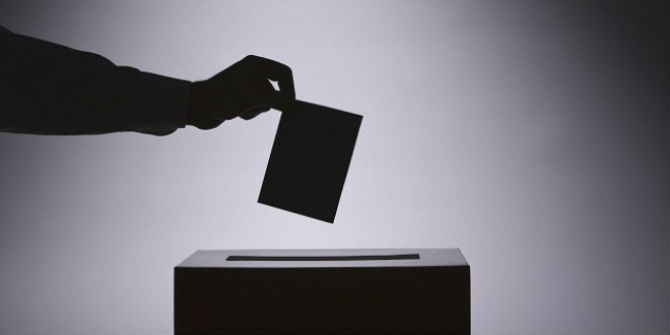What is the point of protest? What makes a protest successful? Jonathan Parry explains the value of protesting.
Today marks the 20th anniversary of the anti-war protests against the invasion of Iraq. The centrepiece demonstration involved an estimated 1.5million people marching through the heart of London, with parallel protests across the country (and the world). The protesters’ slogan ‘Not in My Name’ stands out as the defining image and soundbite of that movement.
This is an opportunity to reflect on the purpose and meaning of political protest, especially given that the right to protest is under threat in the UK.[1] What is the point of protest? What makes a protest successful? I’ll suggest that the ‘Not in My Name!’ slogan captures a distinctive and overlooked aspect of the value of protest.
One straightforward answer is that the value of protest consists in making a difference. A successful protest is one that effects change in line with the protesters’ goals. This is very intuitive. For example, a major part of the value of civil rights demonstrations in United States during the 1960s was that they contributed to reforming deeply unjust laws.
But what should we say about cases of seemingly ineffective protest? The 2003 anti-war protests did not stop the war. Perhaps they never even had a chance of stopping the war. Speaking on the 10th anniversary of the protests, Tariq Ali pessimistically concluded that “It was a huge show of anger but that’s about it. It left no lasting legacy in my opinion. We live in a world that is so totally dominated by capitalism it’s not really surprising. This is what we are now left with – celebrating anniversaries.”[2] If a protest movement does not succeed in effecting change, does this render it pointless? If we think that the value of protest is exhausted by its instrumental value, it seems we are committed to this conclusion.
Alternatively, we might think that while generating change is important, it is not the only valuable function of protest. Protest might also embody certain non-instrumental values. For example, protest might be valuable because the protesters express and affirm important values to one another. In her analysis of the Black Lives Matter movement, Myisha Cherry argues that protests can be valuable because they enable black participants to “inspire, affirm, or comfort” one another, by expressing their dignity and moral worth in the face of a society that denies it.[3] On this view, the protesters achieved something of value, independently of whether their message received uptake from white America. In a similar vein, one might argue that there is value in publically protesting the oppression of the Uighur community at the hands of the Chinese state, even if the odds of influencing China’s leadership are miniscule. Protesting another’s mistreatment may have expressive value. By affirming the victims’ moral worth, we counteract their oppressor’s attempt to deny it.
I find these examples persuasive. But it’s not clear whether these arguments really apply to cases like the 2003 anti-war protests. When protest is explicitly directed towards a very specific policy, instrumental values may seem exhaustive. So, we are still left with the worry that if the protests did not make a difference, they were pointless.
I want to suggest a different kind of response. In particular, I think the ‘Not in My Name’ slogan gives us insight into a distinctive moral function that protest can play.
On first impression, the self-referential nature of the slogan might invite moral criticism. We may feel some sympathy with the pithy assessment of Henry Perowne, the protagonist in Ian McEwan’s novel Saturday, who derides the slogan as excessively individualistic. Its “cloying self-regard suggests a bright new world of protest, with the fussy consumers of shampoos and soft drinks demanding to feel good, or nice.”[4] The criticism, I take it, is that the slogan inappropriately centres the protester, rather than the cause. Put simply: “it’s not all about you!”
But I think this criticism misses something important. In the case of the British anti-war protesters, the war is about them, in one important sense. The upcoming war was claimed to be fought for their sakes. One of the main justifications given (at least initially) by the British government for participating in the invasion was that it would (allegedly) help protect Britain and its citizens from attack by weapons of mass destruction and from terrorist groups harboured by the Iraqi regime.[5] By protesting and proclaiming ‘Not in My Name’ the protestors were able to publicly reject being used as a means of justifying the invasion.
But why is this form of protest valuable? I think we can get a handle on this by reflecting on the value of boycotting and divestment. Put simply, it matters to us whether we are personally implicated in actions and policies that conflict with our values. Most obviously, many of us care about whether we materially contribute to activities that we find objectionable. For example, many people care about whether their pension fund invests in fossil fuels or in industries that exploit workers. When we causally contribute to an outcome, an aspect of our personhood – our agency or purposiveness – is manifested in that outcome. When this manifestation runs counter to our moral commitments, our integrity is threatened. So, one important reason we value being able to control how our money and resources are used – via activities like boycotting and divestment – is that it enables us to preserve our integrity.[6]
My contention is that just as we care about which purposes our material resources are used to support, we also care about how we are used to morally justify actions and policies. To help illustrate the analogy, consider the following example: A government proposes to use its legal powers to evict people from their homes, so that their neighbourhood can be demolished to make way for a new, privately-owned shopping centre. The government justifies the project by appealing to the fact that the shopping centre will create new job opportunities for young people in the city. Two city residents – Tammy and Gina – are both deeply morally opposed to the project. Tammy is middle-aged with a good job and pension. Her pension fund invests heavily in the shopping centre operator. Gina is young and unemployed. She pays no taxes and has no investments.
In this example, Tammy straightforwardly materially contributes to the shopping centre project. Given her moral commitments, she is aptly distressed to learn that she is implicated in this way. It is valuable for Tammy to have the power to divest from the project, by instructing her pension provider to divest from the shopping centre operator (or by switching her pension provider). This enables her to preserve her integrity. I contend that Gina’s integrity is also on the line. Though Gina makes no material contribution, she is nonetheless implicated in the project. The shopping centre is (at least partly) justified by the benefits it will provide to people like herself. The government plans to evict people from their homes for her sake. As Daniel Haybron and Anna Alexandrova point out, in cases like this, the intended beneficiaries may be aptly “horrified…to learn that this action was taken on their behalf, to satisfy their preferences.”[7] And just as it is good for Tammy to be able to materially divest from the shopping centre project, it is good for Gina to be able to morally divest from being used to justify the project, by publically disavowing the co-option of her interests.
I think that the ‘Not in My Name’ slogan captures this distinctive way in which we can be implicated in others’ actions. Rather than being objectionably individualistic, the slogan tracks the idea that when political leaders justify their actions by appealing to our rights and interests, this puts us into a distinctive moral relationship with those who are affected by that policy. Even if we cannot change the outcome, protest can still affect the nature of that relationship, by making it clear to ourselves and to the world that our political leaders cannot use us as a justificatory resource.
By Jonathan Parry
Dr Jonathan Parry is an Assistant Professor in the Department of Philosophy, Logic and Scientific Method at the LSE. He is PI for the ‘Not in My Name: The Ethics of Acting for Others’ project, funded by the UKRI (Grant Number: EP/X01598X/1)
Notes
[1] The Police, Crime, Sentencing and Courts Act. Available at: https://www.gov.uk/government/collections/the-police-crime-sentencing-and-courts-bill For a summary of the bill and the criticisms it has faced, see the overview by Liberty, available at: https://www.libertyhumanrights.org.uk/issue/the-policing-bill-what-happened-and-what-now/
[2] Quoted in Patrick Barkham, ‘Iraq war 10 years on: mass protest that defined a generation’ The Guardian 15th February 2013. Available at: https://www.theguardian.com/world/2013/feb/15/iraq-war-mass-protest. A more optimistic view might try to broaden the relevant notion of impact. For example, Clare Short conjectures that the 2003 protests against Blair’s invasion may have played a role in preventing the Cameron government from intervening in Syria in 2013. “Having enraged everybody so recently, [British leaders] were frightened to do it again. So maybe that was a benefit…At least, that’s the hope.” Quoted in Tim Adams, ‘‘A beautiful outpouring of rage’: did Britain’s biggest ever protest change the world?’ The Guardian 11th February 2023. Available at: https://www.theguardian.com/uk-news/2023/feb/11/slugs-iraq-war-london-protest-2003-legacy
[3] Myisha Cherry, ‘Value-Based Protest Slogans: An Argument for Reorientation’, in The Movement for Black Lives: Philosophical Perspectives(Oxford: Oxford University Press, 2021), 160-175, at p.171. Open access draft available at: https://philpapers.org/go.pl?aid=CHEVPS
[4] Ian McEwan, Saturday (Penguin, 2005), p.72.
[5] As Prime Minister Tony Blair made clear in his address to the nation on the eve of the invasion: “The threat to Britain today is not that of my father’s generation. War between the big powers is unlikely, Europe is at peace, the Cold War already a memory. But this new world faces a new threat of disorder and chaos born either of brutal states like Iraq armed with weapons of mass destruction or of extreme terrorist groups. Both hate our way of life, our freedom, our democracy. My fear, deeply held, based in part on the intelligence that I see is that these threats come together and deliver catastrophe to our country and our world.” Prime Minister’s Address to the Nation. March 20th 2003. Full transcript available at: http://news.bbc.co.uk/1/hi/uk_politics/2870581.stm
[6] For a more detailed integrity-based theory of boycotting and divestment, see Christopher Mills and Prince Saprai, ‘Commercial Boycotting and Conscientious Breach of Contract’, Journal of Applied Philosophy 36, No.2 (2019): 575-591.
[7] Daniel Haybron and Anna Alexandrova, ‘Paternalism and Economics’ in Christian Coons and Michael Weber (eds), Paternalism: Theory and Practice (Oxford: Oxford University Press, 2013): 157-177, at p.164.






















